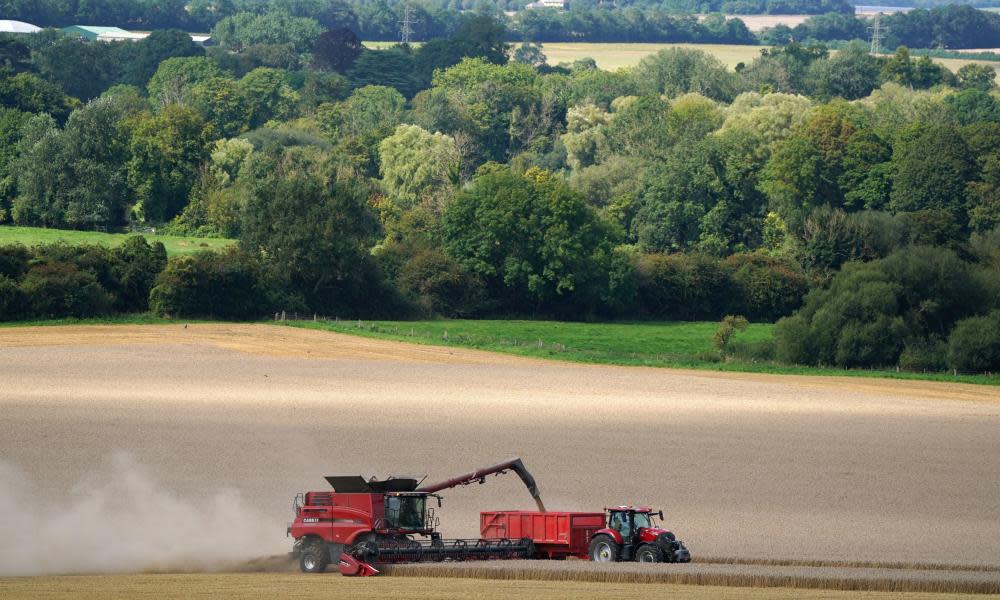Hard-right Tories push to delay environmental land management scheme

The government’s plans to pay farmers for their stewardship of nature could be delayed or scrapped, it is feared, as hard-right Conservative MPs join the campaign against the environmental land management scheme (Elms).
The rollout of Elms, seen by some as one of the few positive Brexit dividends, is due to begin this year, with more standards beginning incrementally between 2023 and 2025.
Brexit campaigners pointed to the ability to leave the common agricultural policy – the EU’s farm subsidy system – as a good reason to leave the EU. Part of that system involved paying farmers for having land in food production, and this, it has been argued, led to environmental damage across the continent.
Michael Gove, as environment secretary and one of the cheerleaders for Brexit, drew up the new system for England’s farmers, paving the way for what he claimed would be a “green Brexit”.
But Labour and the Liberal Democrats have joined the National Farmers’ Union in calling for a delay to the scheme, arguing that it is incompatible with the cost of living crisis to pay farmers not to produce food, and instead to create forests and ponds.
There are worries within government that those in the right wing of the party have seized this opportunity to get the subsidy scrapped.
Sources say Jacob Rees-Mogg, who is believed to have successfully caused the government to drop its post-Brexit animal welfare commitments including a foie gras ban, has been among those putting pressure on the government to drop the Elms scheme.
Steve Baker, the MP for High Wycombe, who is widely thought of as being instrumental in the campaign for a hard Brexit, has been openly pushing for Elms to be rethought.
Baker, who runs the eurosceptic European Research Group and is a member of the Net Zero Scrutiny Group, which is pushing against the government’s net zero measures, said: “Multiple government ambitions on land use have taken land out of food production.
“Food security should be as much a national priority as energy security. We must prioritise food security and food chain resilience – cutting unnecessary regulations and interventions, and consider refocusing our food chain functionality.”
Defra ministers say they are fighting to keep Elms a priority and that they hope it can still be delivered on time.
Victoria Prentis, the farming minister, said: “Abandoning the phase-out of the area-based subsidy would not be the right thing to do for farmers or the environment. In 2017, £1.775bn of payments were made across 85,000 farms – 10% of claimants received half of this total. 33% of farms received less than £5,000 each.
“Our new schemes are supporting the choices that individuals take for their own farms and helping to boost their productivity and profitability. We have recently almost trebled our new farming equipment and technology fund to over £48m to support more farmers with their investment plans.”
Delaying Elms would put a big dent in the government’s net zero plans, according to analysis by the thinktank Green Alliance. It would reduce agricultural emissions savings in 2035 to half what they could have been if the Elms programme was delivered on time. Because emissions savings are cumulative, this would put more pressure on other areas to decarbonise even faster to make up for this loss, leaving a “substantial gap in the UK’s net zero plans”, according to the report.

 Yahoo Movies
Yahoo Movies 
